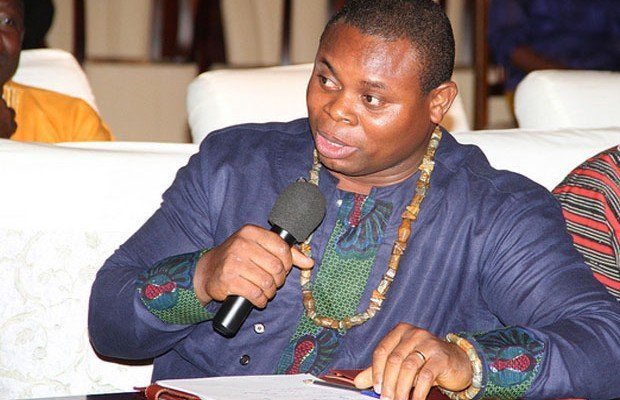The Founding President and Chief Executive Officer (CEO) of IMANI Centre for Policy and Education, Franklin Cudjoe has stated that he was surprised and disappointed with some minority lawmakers who voted to confirm President Nana Addo Dankwa Akufo Addo’s ministerial nominees.
Franklin Cudjoe contends that the MPs should have rejected the ministers because Ghanaians have complained about the size of the government and demanded a reduction in that regard.
Speaking in an interview with Joy News on March 27, 2023, Cudjoe urged the parliamentarians to be sensitive in the line of their work.
“It is no longer rhetoric the concerns that Ghanaians have expressed about the size of the government…I mean, it is no longer funny, essentially there are some serious people who think that this matter must be treated with all the necessary attention and urgency.
“So, I was quite really surprised and disappointed at the same time that this actually happened,” he said.
Prior to the vetting of ministerial nominees by the Appointments Committee of Parliament, the NDC had issued a directive to its MPs to reject the nominees in demand for a reduction in the size of the current government.
However, when the House conducted a secret ballot on the nominees, all six got overwhelming votes despite the equal numbers on both sides of the House.
The outcome of the voting process has led to accusations of treachery being made against the minority MPs.
Some members of the caucus have since taken to social media to express their disappointment with the result while others have sought to claim their innocence.
How the said ministers were voted
KT Hammond, Minister for Trade and Industry
Kobina Tahiru Hammond (MP for Adansi Asokwa) was approved as the Minister of Trade and Industry with 154 YES votes, 116 NO votes, one rejected ballot and one abstention.
So, should all the 136 NPP MPs present have voted for him, it means that at least 18 NDC MPs voted to approve him.
Bryan Acheampong, Minister for Food and Agriculture:
Bryan Acheampong (MP for Abetifi) was approved as the Minister of Food and Agriculture with 167 YES votes, 98 NO votes, one rejected vote and 2 abstentions.
So, should all the 136 NPP MPs present should have voted for him, it means that at least 31 NDC MPs voted for him.
Stephen Asamoah Boateng, Minister of Chieftaincy and Religious Affairs:
Also, Stephen Asamoah Boateng was approved to become the Minister of Chieftaincy and Religious Affairs with 147 YES votes, 122 NO votes and three abstentions.
This means that at least 11 NDC parliamentarians voted to approve Asamoah Boateng’s appointment.
Mohammed Amin, Minister of State (at the Finance Ministry):
One hundred and fifty-two (152) MPs voted to approve Mohammed Amin as the Minister of State (at the Finance Ministry), with 123 voting to reject his approval and 3 others abstaining.
This implies that at least 16 NDC MPs voted to approve Mohammed Amin.
Stephen Amoah, deputy minister of Trade and Industry:
Also, 146 MPs voted to approve Stephen Amoah, the Member of Parliament for Nhyiaeso, to become the deputy minister for Trade and Industry which means that at least 10 NDC MPs voted with the majority caucus.
One hundred and twenty-three (146) rejected his nomination and 3 abstained from voting.
And finally, Osei Bonsu Amoah, Ministry of Local Government.
149 MPs voted to approve OB Amoah as Minister of the Local Government.
Source: ghanaweb.com




